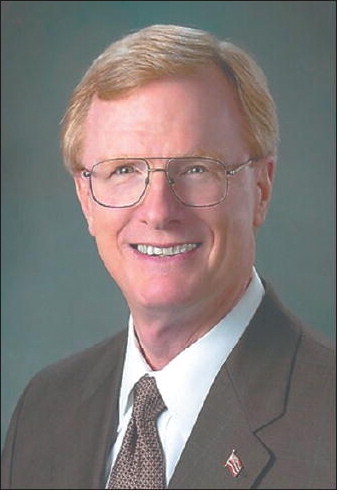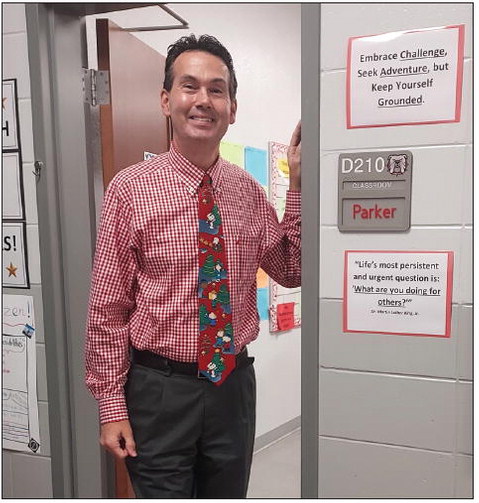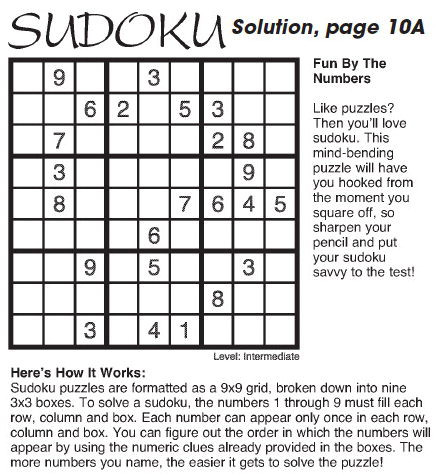Reeves continued from page 1A. Editor’s Note: The following is the actual order from Georgia Supreme Court.


NOTICE: This opinion is subject to modification resulting from motions for reconsideration under Supreme Court Rule 27, the Court's reconsideration, and editorial revisions by the Reporter of Decisions. The version of the opinion published in the Advance Sheets for the Georgia Reports, designated as the "Fi – nal Copy," will replace any prior version on the Court's website and docket. A bound volume of the Georgia Reports will contain the final and official text of the opinion.
In the Supreme Court of Georgia Decided: July 30, 2024 S23Z0337. INQUIRY CONCERNING JUDGE ROBERT REEVES. PER CURIAM.
This judicial discipline matter is before this Court on the agreement between the Director of the Judicial Qualifications Commission (“JQC”) and the Chief Judge of the Middle Judicial Circuit Superior Court, Robert Reeves. Pursuant to JQC Rule 23, the Amended Discipline by Consent Agreement (“Consent Agreement”) would resolve formal charges against Judge Reeves with a 30-day unpaid suspension and a published public reprimand. Further, under the terms of the Consent Agreement, Judge Reeves, whose current term expires on December 31, 2026, has agreed that he will not seek reelection to judicial office. As explained below, with the understanding that Judge Reeves is serving his final term in judicial office, we accept the Consent Agreement and order a 30-day unpaid suspension followed by a public reprimand published in Judge Reeves’s local legal organs and the Fulton County Daily Report.
On November 16, 2022, the Director filed formal charges against Judge Reeves. The formal charges included 58 counts, which alleged numerous instances of misconduct inside and outside the courtroom over a seven-year period.
In June 2024, the Director and Judge Reeves entered into an initial consent agreement, under which Judge Reeves agreed to be publicly reprimanded. But the Hearing Panel rejected the proposed sanction as insufficient and gave guidance on the type of sanctions the Hearing Panel would find more appropriate.
The Director and Judge Reeves then entered into the Consent Agreement under consideration here, which adopted the Hearing Panel’s recommended sanctions, proposing discipline in the form of “a 30day unpaid suspension followed by a public reprimand published in [Judge Reeves’s] local legal organ and the Fulton[County] Daily Report.”
1 Under the Consent Agreement, Judge Reeves agreed to voluntarily recuse from any cases involving certain of the lawyers named in the allegations of this case. The Consent Agreement further provided that Judge Reeves’s current term in office expires on December 31, 2026, and that “[h]e does not intend to pursue election to another term in judicial office.” At a June 18, 2024 hearing, the Hearing Panel inquired into the meaning of this statement, asking, “If we are distilling for the Supreme Court what we understand the consent agreement to be, . . . would [it] be correct to say . . . that one of the conditions is that Judge Reeves will not seek reelection[?]”And Judge Reeves responded, “Correct.”
Under the Consent Agreement, Judge Reeves either admitted the charge or admitted that “evidence exists with which the Director could prove” the charge in 33 of the formal charges’ 58 counts. See JQC Rule 23 (A) (providing for discipline by consent based on a “judge’s admission of some or all of the formal charges or the judge’s admission that evidence exists with which the Director could properly prove some or all of the formal charges”). And the Director explained that she did not proceed on the remaining counts because, as to some counts, Judge Reeves had admitted violating other provisions of the Code of Judicial Conduct based on the same conduct, and, as to other counts, there were conflicts in the evidence or issues with a witness’s credibility.
As summarized by the Hearing Panel, the counts that Judge Reeves admitted pursuant to the Consent Agreement d e s c r i b e [d] fourteen incidents spanning seven years of [Judge] Reeves’s seventeen years of service as a Superior Court judge. Most of these episodes involved [ Judge] Reeves’s use of coarse, insensitive, demeaning, and/or insulting language, particularly with women. One involved a series of minor but nonetheless unwanted physical contacts between [Judge] Reeves and a female lawyer. The remaining incidents consisted of [Judge] Reeves improperly seeking to influence the handling of criminal prosecutions and misusing his title and office to assist the fundraising efforts of a local charity.
The Hearing Panel found that Judge Reeves’s admissions pursuant to the Consent Agreement proved by clear and convincing evidence that Judge Reeves committed the charged acts. And although Judge Reeves had admitted that his conduct violated the Code of Judicial Conduct, the Hearing Panel performed its own assessment of the matter, concluding: All of Judge Reeves’s offensive in-court and out-of-court statements violated Rules 1.2 (A) (duty to promote public confidence in the integrity of the judiciary) and 2.8 (B) (duty to be dignified and courteous to all with whom judges interact in their official capacity). Some of his statements also were inconsistent with Rule 2.3 (B) (duty not to engage in sexual harassment). His various improper interactions with a municipal court judge and state and superior court prosecutors concerning their cases and investigations violated Rules 1.2 (A), 1.3 (duty not to lend prestige of office to advance private interests of others) and 2.9 (A) (duty to avoid ex parte communications). Finally, his well-meaning but prohibited fundraising efforts ran afoul of Rules 1.2 (A), 1.3, and 3.1 (C) (duty to abstain from extra-judicial activities that cast doubt on judicial impartiality) [,] and 3.7 (A) (3) (duty to refrain from personally soliciting funds for organizations).
(Footnote and emphasis omitted.)
The Hearing Panel further concluded that Judge Reeves had engaged in forms of judicial misconduct for which the Georgia Constitution authorizes sanctions, stating: [Judge] Reeves’s various acts of misconduct constitute[d] willful misconduct in office (i.e., judicial acts taken in bad faith), habitual intemperance (i.e., rude, abusive, or off-color language or improper and unsolicited physical contact), and/or conduct prejudicial to the adminis t ration of justice which brings the judicial office into disrepute.
(Footnotes and emphasis omitted.)
Turning to the appropriate sanction, the Hearing Panel weighed the gravity of some of the admitted misconduct against certain mitigating factors. In particular, it highlighted the instances of “unwanted physical contact” and “judicial interference in criminal proceedings,” but noted that Judge Reeves’s offenses were “not mean-spirited or self-serving” and that he had taken a “refreshing and honest approach to the investigative process” and accepted responsibility for his misconduct. The Hearing Panel concluded that, under the circumstances, a public reprimand was an insufficient sanction on its own and that removal from office would be too severe. And although the Hearing Panel noted that “[t]here [were] no published Georgia judicial discipline matters directly comparable to Judge Reeves’s miscellaneous collection of violations,” it concluded that the sanctions proposed in the Consent Agreement were generally consistent with existing precedent. Accordingly, based on existing precedent, the contents of the Consent Agreement, and the statements made by Judge Reeves and his counsel during the June 18, 2024 hearing, the Hearing Panel recommended that this Court accept the Consent Agreement. More specifically, consistent with the Consent Agreement, the Hearing Panel recommended that we impose a “sanction of a 30-day unpaid suspension — with Judge Reeves to remain away from the various courthouses of his Circuit during his suspension” — and a majority of the Hearing Panel also recommended that we impose a “sanction of a published public reprimand.” (Emphasis omitted.)
We agree with the Hearing Panel’s analysis and the recommended sanctions agreed to by a majority of the Hearing Panel. Although we are likewise unaware of any directly comparable judicial-discipline cases, the Consent Agreement’s proposed sanctions generally comport with our precedent. In 14 instances over a seven-year period, Judge Reeves violated seven rules by engaging in a wide variety of conduct. Thus, Judge Reeves’s misconduct was more wide-ranging than conduct we have previously found warranted only a public reprimand or a shorter suspension. See, e.g., Inquiry Concerning Baker, 313 Ga. 359, 363 (2) (870 SE2d 356) (2022) (imposing “a public reprimand for [a judge’s] periodic improper dismissal of cases presented to her for guilty pleas”); Matter of Inquiry Concerning a Judge No. 481, 251 Ga. 524, 524-525 (307 SE2d 505) (1983) (imposing a 15-day suspension without pay for judicial misconduct during a single trial in which the judge made derogatory and flippant remarks, prevented an attorney from perfecting the record regarding an evidentiary ruling, and held the attorney in contempt when he persisted in doing so).
But although Judge Reeves’s violations were varied and numerous, his underlying misconduct was less persistent and injurious than the misconduct we concluded required a 90-day unpaid suspension and a public reprimand in Inquiry Concerning Gundy, 314 Ga. 430 (877 SE2d 612) (2022). By contrast with the judge in that case — who effectively abandoned her job for significant periods of time while also wrongfully imprisoning a half-dozen defendants for a week, see id. at 431-432, 434 — there is no allegation that Judge Reeves failed to perform his judicial duties or that his misconduct resulted in such severe consequences to the affected parties.
Falling somewhere between these poles, Judge Reeves’s misconduct was most similar to the conduct at issue in cases where we have imposed a 30-day unpaid suspension with or without a public reprimand. See, e.g., In re Broome, 245 Ga. 227, 227-229 (264 SE2d 656) (1980) (ordering that a judge “be suspended from office without pay for a period of thirty (30) days and that during said period he physically remain away from his chambers,” where the judge presided over several cases in which he was disqualified, due to a conflict of interest, and had used derogatory, vulgar, and obscene language toward another judge). See also Inquiry Concerning Hays, 313 Ga. 148, 149-150 (868 SE2d 792) (2022) (approving a discipline-by-consent agreement and ordering that the judge “be suspended without pay for 30 days and receive a publi reprimand upon his return to the bench,” where the judge admitted engaging in an improper verbal altercation with a defendant and then grabbing him and pushing him against a wall). And our concerns that a 30-day unpaid suspension and a public reprimand may be insufficient sanctions under the circumstances are mitigated to some degree by the fact that Judge Reeves has accepted responsibility for his actions and agreed, pursuant to the Consent Agreement, not to seek reelection to judicial office.
Accordingly, this Court now accepts the Consent Agreement with Judge Reeves approved by the Hearing Panel and filed with this Court on July 18, 2024. We order that Judge Reeves be suspended without pay for 30 days, during which time he shall remain away from the various courthouses of his Judicial Circuit. See JQC Rule 6 (B) (2). The suspension shall start no later than September 1, 2024. And we further order that, following Judge Reeves’s return to the bench, a public reprimand be published in the Middle Judicial Circuit’s legal organs and the Fulton County Daily Report. See JQC Rule 6 (B) (5). Upon issuance of this opinion, all filings made in this Court in this matter shall be unsealed. See JQC Rule 23 (D).
Discipline by consent accepted. Published public reprimand and suspension for 30 days. All the Justices concur.
1 The Middle Judicial Circuit has several legal organs. Accordingly, the agreement that Judge Reeves receive “a public reprimand published in [his] local legal organ” requires publication of the public reprimand in each of the Middle Judicial Circuit’s legal organs.








